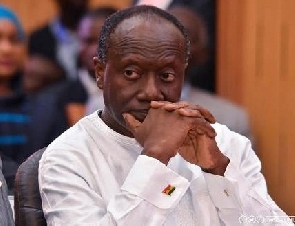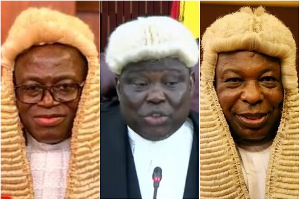Less than a week after Finance Minister Ken Ofori-Atta presented mid -year budget review proposals to Parliament, which would raise the 2020 fiscal deficit from the originally targeted 4.7 percent of Gross Domestic Product to a record high 11.4 percent, economists and public policy analysts have increased their demands for a further upward review of the deficit projections to a crescendo.
Their demand is that energy debts and financial sector reform debts be included in the deficit computations rather than their being treated as below the line items as government has been doing since their emergence in 2017.
Instructively, these demands are being led by the International Monetary Fund itself, which included those debts in its own assessments of Ghana’s fiscal position, during its review of the country’s request for a Rapid Credit Facility earlier this year to support its public expenditure response to the outbreak of the COVID 19 pandemic.
Several indigenous prominent economists and public policy analyses institutions have since followed suit, led by immediate past Finance Minister Seth Terkper. Yesterday, Dr John Kwakye the renown economist who is Director of Research at the Institute of Economic Affairs added his voice to demands for government to include expenditure on servicing those debts to its fiscal balance computations. His call came barely hours after Ken Ofori-Atta clearly evaded questions on the issue from Bernard Avle, host of ‘Point of View’ a widely watched current affairs programme, aired on Citi TV.
While many critics of government’s stance accept that the energy sector debts can be discounted since ESLA Plc, the special purpose corporation established by government to deal with them, is using public revenues from a dedicated levy to service and amortize them, the financial sector reform costs are a different matter. Even after netting off recoveries being made by the appointed receivers, government is still indebted to the tune of some GHc19 billion through the special resolution bonds it has issued.
Government’s stance is that while it acknowledges the debt as part of the public debt, servicing them is not part of the fiscal deficit since they are “one-off” expenditures that are not part of its usual fiscal activities.
However critics are mounting pressure to treat them as part of the fiscal deficit since their servicing still needs to be financed. Indeed, the financial reform costs, financed at about 20 percent per annum – which is about the coupon rate paid by government on its medium term cedi denominated bond issuances currently – would amount to nearly GHc4 billion this year.
This would take the domestic component of the recently revised fiscal deficit financing requirement from government’s stated GH17.4 billion (out a total resource gap of GHc25.2 billion) to about GHc21 billion. Instructively GHc10 billion of this is being provided directly by the Bank of Ghana, so the financing required from domestic financial markets will amount to about GHc11 billion rather than GHc7.4 billion as claimed by government.
In effect this increases the requisite domestic financing from local financial markets by about one third, which means significant upward pressure on interest rates which would consequently affect both the availability and cost of credit for the private sector too. Financing the extra requirement from foreign sources is not an option since one of the condition for Ghana to benefit from the suspension of debt servicing on foreign bilateral debt under a G-20 initiative this year – which is suspending some US$500 million in debt servicing payments this year – is that beneficiary countries do not take further commercial financing from international financial markets during the rest of 2020.
Government officials privately admit that its stance on the financial sector reform debt in particular is dubious, but done for the interest of the state – a lower stated fiscal deficit improves its negotiating position for new financing and refinancing of existing debt.
However government’s critics insist that the cat is already out of the bag and so its stance simply results in incorrect public finance computations which cannot help it work its way out of the current COVID 19 instigated fiscal predicament.
Business News of Wednesday, 29 July 2020
Source: goldstreetbusiness.com













